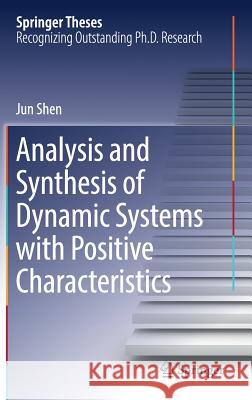Analysis and Synthesis of Dynamic Systems with Positive Characteristics » książka
topmenu
Analysis and Synthesis of Dynamic Systems with Positive Characteristics
ISBN-13: 9789811038792 / Angielski / Twarda / 2017 / 123 str.
Kategorie:
Kategorie BISAC:
Wydawca:
Springer
Seria wydawnicza:
Język:
Angielski
ISBN-13:
9789811038792
Rok wydania:
2017
Wydanie:
2017
Numer serii:
000416125
Ilość stron:
123
Waga:
3.50 kg
Wymiary:
23.5 x 15.5
Oprawa:
Twarda
Wolumenów:
01
Dodatkowe informacje:
Wydanie ilustrowane











